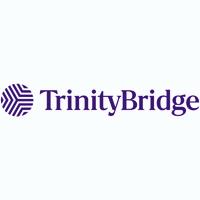5 tips for getting financially well - and staying that way
At some point most of us will have read, or even started, an email with these words - a friendly, professional message that says the writer hopes we haven’t got a cold and aren’t having a bad day.

I’d like to open with something a bit more specific: "I hope you and your employees are financially well."
It might not be quite so socially acceptable to ask that of a client or colleague in the opening to an email, but financial wellbeing at work is every bit as important as physical health.
‘Financial wellbeing’ means:
- Being able to fund day to day living
- Having enough to cover unexpected expenses
- Being on track to achieve your financial goals
- Having the financial freedom to live the life that you choose
Just like physical health, any workforce will have varying levels of financial wellbeing. But in the same way that offering a gym membership won’t necessarily get everyone fitter, finding ways to engage employees with their finances and help them to improve their wellbeing isn’t a one-size-fits-all strategy.
However, all businesses can help their staff to get fitter financially. Here are five tips that any company can use:
1) It’s not just about retirement
Saving for life after work is a part of financial wellbeing, but it’s far from the whole picture. Debt management, saving for a house, or simply helping staff to budget more effectively are all important, and can all be supported in the workplace.
Good financial habits start early, ideally on joining, but it’s never too late to make an improvement. Financial education is the key to unlock the value across all your benefits and to engage staff with a source of improving their personal financial wellbeing – your reward and benefits. That’s good for them and good for your business.
2) Look at the whole picture
Your pension won’t be the only one that most employees have – they will have pensions from previous companies, possibly personal plans, other savings, property, their partner’s savings and pensions, as well as a host of other possible sources of income. Helping staff to be confident about their options, how to make good, well-informed decisions and secure their financial future means encouraging them to keep track of and think about all of their finances.
3) That said, pensions are king
Pensions are still the most effective way of saving for the long term and they provide the bedrock for most people’s retirement plan. Whatever type or quality of pension you offer as a company, help your employees to understand what it offers them and how they can make the most of it.
4) Allowing for tax
Pension tax allowances have fallen steeply over the last 10 years and as a result more staff may now breach those limits. But each individual in the UK has an annual savings allowance, personal tax allowance, ISA allowance and capital gains tax allowance to name but few. The most effective tax planning strategy is to ensure you use the tax allowances and reliefs available to you each year. Helping your staff to be tax-aware can provide them with a real advantage.
5) It all starts with a plan
Feeling financially well is about reassurance, confidence, freedom from worry or strain and a sense of control over your own financial future – for tomorrow, next month and 10 years time. A plan provides this and can be as simple as a weekly budget to a life plan with key financial goals over a lifetime.
Teaching your employees to plan and to use that plan for whatever financial opportunities are in front of them is giving them a life skill that they will benefit from forever and one they can use day in day out, irrespective of their wealth, their age or their personal circumstances. It’s the most valuable benefit you can give.
And it doesn’t stop at education for some employees. In the same way that some people will choose to have regular health checks, or will go to a weekly bootcamp exercise class, or will employ a fitness coach to support and advise on physical wellbeing, there will be times when your staff will need or want access to a regulated financial adviser to help them to get into top financial shape.
Jeanette Makings is head of financial education at Close Brothers.
This article was supplied by Close Brothers.
Supplied by REBA Associate Member, TrinityBridge Limited, formerly Close Brothers Asset Management
TrinityBridge has been delivering workplace financial wellbeing programmes to some of the UK’s best-known employers for over 55 years.







